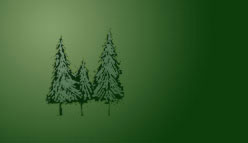|
Rajwada
Synonymous with the heart of Indore city, it stands today as a mute witness to the bygone splendour of the Holkar rulers. This 200
year old seven-storey historic palace of the Holkars is built in a mixture of Muslim, Maratha and French styles.
.
Kajrana
The citizens of Indore have great faith in this Ganesh temple, built during the reign
of Ahilyabai Holkar. It is believed that all wishes are fulfilled by praying here. Nearby is the dargah of Nahar Sayed. This
is an important pilgrimage place for Maita Muslims.
Bada Ganpati
Better
known for its size than antiquity, this temple houses perhaps the largest Ganesh idol in the world measuring 25 feet from
crown to foot. Created as a result of the dream of an Avantika (Ujjain) resident, Shri Dadhich, it was built in 1875.
Annapurna
This temple was inspired by the Meenakshi temple
of Madurai. Four life-sized elephants hold an ornately decorated gate in
plaster. Inside the temple of Annapurna Devi are also temples of Shiva, Kal Bhairava, Hanuman and a Pravachan Hall. The outer wall of the main temple is decorated
with colourful motifs from mythological stories.
Lal Bag Palace
Lal Baag Palace is one of the grandest monuments the Holkar dynasty left Indore. A reflection of their taste, grandeur and lifestyle,
its construction began in 1886 under Tukoji Rao Holkar II, and was carried out in three phases. The final phase was completed
in 1921 under Tukoji Rao Holkar III. Many royal receptions were held here. It has a total area of 28 hectares, and at one
time it had the reputation of having one of the best rose gardens in the country.
Kach Mandir
This Jain temple is an architectural marvel
in glass. The walls, ceilings, floors, pillars and door knobs are entirely inlaid with glass. Even paintings are done in glass.
Atop is a special glass chamber which multiplies the three statues of Lord Mahavira installed there into an indefinite number
(said to be visible upto 21 times, corresponding to the 21 tirthankaras).
Chhatris
Chhatris
are the tombs or cenotaphs erected in memory of dead Holkar rulers and their family members. The Chhatris picturesquely poised
on the Khan river banks near Rajawada are incomparable in terms of Maratha architecture and sculpture of their period. At
Chhatri Baag is the main collection of tombs housed in two compounds. Close by is the beautiful Bolia Sarkar's Chhatri constructed
in 1858 AD in memory of Sardar Chimnaji Appa Sahib Bolia.
Town Hall
Made in 1904 and originally named King Edwards Hall, it was renamed Mahatma Gandhi Hall in 1948. Its
architectural style is Indo-Gothic. Made in Seoni stone, its domes and staples are a landmark of Indore
today. It has a four-faced clock tower in front, because of which it is locally known as Ghanta Ghar.
It is frequently the venue for the various book and painting exhibitions, fairs and festivals held throughout
the year. The building also has a library, a children's park and a temple.
Gita Bhawan
Adorned
with many statues of gods of various religions, its construction is inspired by the religious motto "many names to a God is
after all of one God."
Central Museum
The
Indore Museum houses the finest collection of Parmar sculptures from Hinglajgarh. The Parmar style originated here, and is
characterized by proportioned figures, carefully and ornately depicted in stone. The museum is also known for its collection
of coins, arms and armour.
Bijasen Tekri
A
2 minutes drive from the airport leads you to a hillock on which was perched a guest house of the Holkars, now converted into
Border Security Arms Museum, as well as a small temple of Bijasen Mata, built in 1920, which has a magnificent view of the
sunset. A mela (fair) is held during the Navratri. A good picnic spot, with a breathtaking view of Indore city by night.
Gomat Giri
The
Jain Samaj has constructed a 21 feet statue of Lord Gomateshwar, a replica of the Bahubali statue of Shravanbelagola. Also
built here are 24 marble temples with shilars for each tirthankar.
Links for Indore
|




